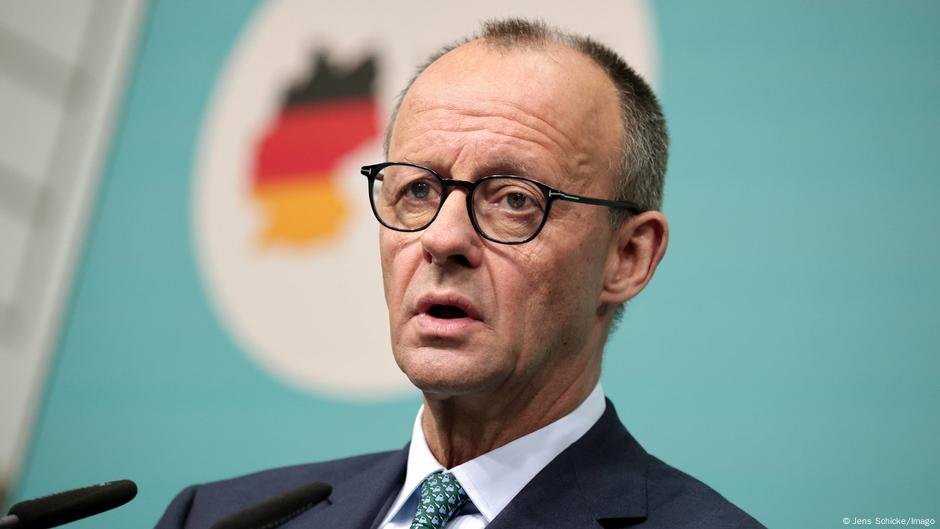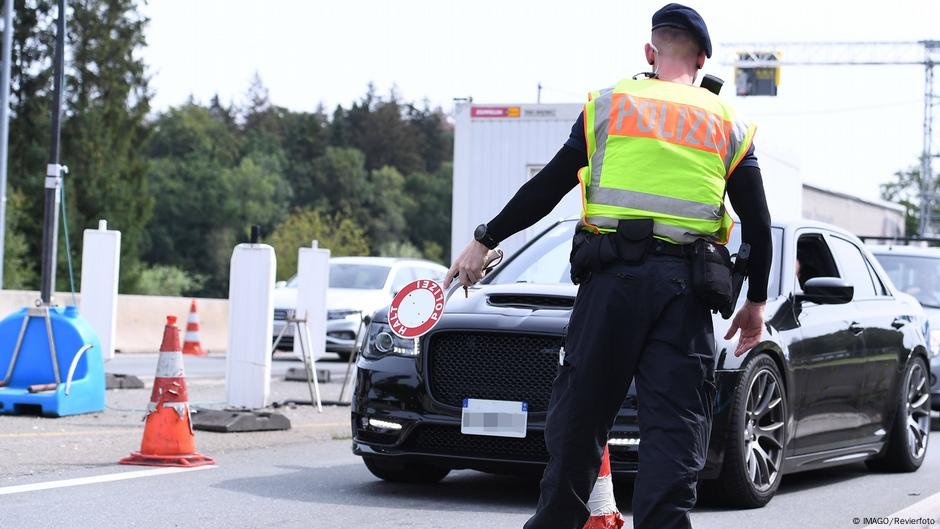Tighter border checks, which include turning away migrants at all of Germany's borders are expected to be in force now that the new government has taken office. But some of Germany's neighbors are not so happy with the plans.
Work begins for Germany's new government today, after the country's new Chancellor, conservative Friedrich Merz, leader of the Christian Democratic Union (CDU) party secured the majority needed to take office on his second attempt on Tuesday (May 6).
One of the first tasks announced by the new government is to tighten up Germany's border controls and migration policies.
Even before taking office members of Merz's new government declared they would attempt to stop people from entering Germany without papers and send them back to the safe EU countries that surround Germany. A proposal that has not been welcomed by most of Germany's neighbors.

The continuation and planned expansion of tighter border controls will mean that individuals seeking to apply for international protection upon arrival in Germany from another European Union or Schengen country could effectively be denied entry.
For many others who regularly commute from their country of residence to another country for work, it will potentially mean being entangled in cross-border traffic.
Read AlsoGermany to implement tougher border controls and asylum rules after May 6
Cross-border commuting workers
Luxembourg, one of Germany’s neighbors on the west, is very critical of border tightening measures, the German news agency, dpa, reported on Monday (May 6).
"We must avoid creating borders in people's minds again. Schengen must live! Unnecessary disruptions to cross-border traffic must be avoided, in the interest of the daily lives of the people in the Greater region," Luxembourg's Interior Minister Léon Gloden reportedly said.
Luxembourg is one of the countries with the highest percentage of foreigners. Nearly 50 percent of its population are foreigners, with a majority being nationals of other European Union member states, namely Portugal, France, and Italy.

According to government data, over 200,000 employees commuted to Luxembourg every day from France, Belgium, or Germany in 2019. These people on the move make up about 44 percent of Luxembourg’s total workforce.
In mid-February, Luxembourg lodged a written objection to the extension of German border controls with the EU Commission.
In terms of its refugees and asylum seekers, in 2024, the United Nations Refugee Agency recorded 10,262 refugees and 3,088 asylum seekers in Luxembourg. The top three countries of origin of refugees include Ukraine (4,148), Eritrea (2,079), and Syria (2,043).
The UN also recorded a small but steadily increasing number of temporary work permits granted to refugees in Luxembourg due to streamlined processes undertaken by the Employment Development Agency (ADEM), which began in September 2023.
Austria supports tighter controls
Meanwhile, Austria, Germany’s southern neighbor, has voiced careful support for the new German government's plans to tighten its asylum policy, dpa reported yesterday (May 6).
"Congratulations, dear Friedrich Merz on your election as chancellor of the Federal Republic of Germany!" Austria’s Chancellor Christian Stocker wrote on the social media platform X in German.
"A shared border also means shared responsibility -- I look forward to friendly cooperation between us and our governments," Stocker added, perhaps making it politely, but firmly, clear that Germany should not try and act unilaterally when it comes to imposing its new measures.
Austria's relatively recently formed government too has been busy laying out its migration policy framework. In Februrary, its plans emphasized reducing irregular migration and improving migrant return mechanisms.
Austria also announced an immediate temporary suspension of family reunifications for refugees while seeking changes to the European Union’s family reunification regulations more permaenently.
Read AlsoAustria's new coalition takes hard stance on migration
Overhaul of the immigration system
Germany's newly formed coalition government between the conservative Christian Democratic Union (CDU/CSU) and the center-left Social Democratic Party (SPD) have shared their plans for the next four years in government in a 144-page coalition agreement, outlining among other things a series of policy measures that will make it more difficult for people to secure international protection in Germany and to acquire German citizenship.
A central measure is the tightened border controls. Due to Germany’s landlocked position within the European Union, asylum seekers must apply for protection in the first EU country they enter—effectively disqualifying Germany as a destination for many arrivals.
The coalition’s policies aim to limit irregular migration while maintaining Germany’s commitments under EU law. However, rights groups are already voicing concerns about potential human rights implications and the impact the new plans could have on legitimate asylum seekers. Almost 300 civil society organizations spoke out this week against the new coalition's migration policy.
Read AlsoGermany: New coalition government to tighten migration and citizenship policy
